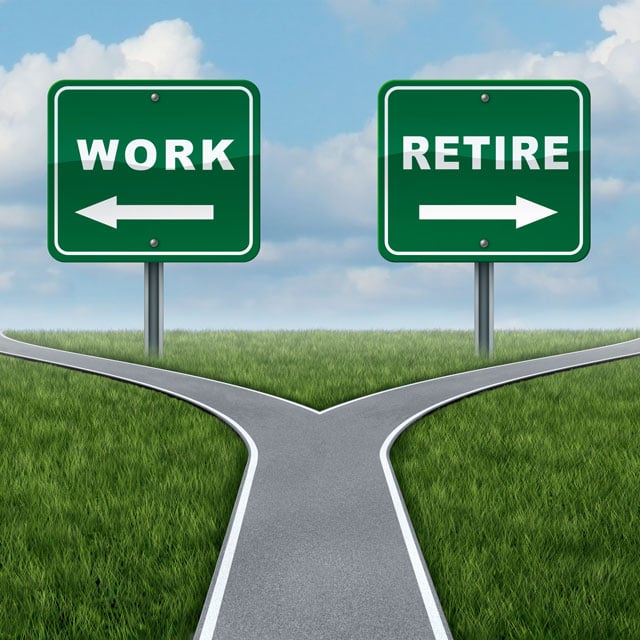Delayed Retirements Remain Elusive for Most Americans

What You Need to Know
Securing gainful employment after leaving a career is also challenging, an annual confidence survey found.
Many Americans say they want to retire at age 65 or even 70, but the majority of workers retire by 62 — often before they are adequately prepared for life after work from either a financial or lifestyle perspective.
This is one of the headline findings from the 34th annual Retirement Confidence Survey, published Thursday by the Employee Benefit Research Institute. The 2024 survey polled more than 2,500 Americans — split nearly evenly between workers and retirees — on a variety of questions about retirement confidence.
According to EBRI, Americans are stressed about retirement, especially when it comes to subjects such as achieving savings adequacy, funding health care in retirement, plotting the transition to retirement and identifying trusted sources of information. The good news in the survey results is that Americans seem to be rebuilding some retirement confidence following a number of difficult years in the wake of the COVID-19 pandemic and the big market losses of 2022.
For example, some 68% of workers and 74% of retirees are now confident they will have enough money to live comfortably throughout retirement — a slight increase from the prior year’s survey. Inflation remains a top reason for Americans’ lack of confidence, EBRI reports, with 31% of workers and 40% of retirees citing inflation as their top stressor.
While most Americans are still worried that inflation will remain high over the next year, their fears are slowly easing, and significantly fewer workers (78% vs. 86% in 2023) and retirees (72% vs. 79% in 2023) are concerned about this possibility worsening their retirement. Americans’ trust in the economy is also recovering, as fewer workers (71%) and retirees (59%) are concerned about a possible recession over the next year.
Ultimately, EBRI’s flagship survey report once again shows that Americans face an uncertain and stressful retirement planning outlook, but they are also directly confronting their fears and widely engaging in savings and investing behaviors that can help put them on the right foot.
Retiring After 65 Remains Uncommon
As in prior years, there is a big gap between when active workers expect to retire and when retirees say they actually did. On average, workers continue to report an expected median retirement age of 65, while retirees report they retired at a median age of 62.
In this year’s survey, workers are notably more likely to say they expect to retire at ages 70 or older, with 23% of workers expecting to retire at 70 or older or not at all. The truth is that just 6% of retirees report this was the case for them, and while just 14% of workers say they plan to retire before age 60, 32% of retirees left the work force that early.
Also eye-opening is that 22% of workers say they plan to retire between the ages of 60 and 64, although 38% of retirees say they retired in that age range. This difference between workers’ expected retirement age and retirees’ actual age of retirement suggests that a considerable gap exists between workers’ expectations and retirees’ experiences, according to EBRI.
Many who say they retired earlier than planned did so because of a hardship, such as a health problem or disability (31%). Another 32% say that they retired due to changes at their company, but a larger share say they could afford to retire earlier than expected (39%).






